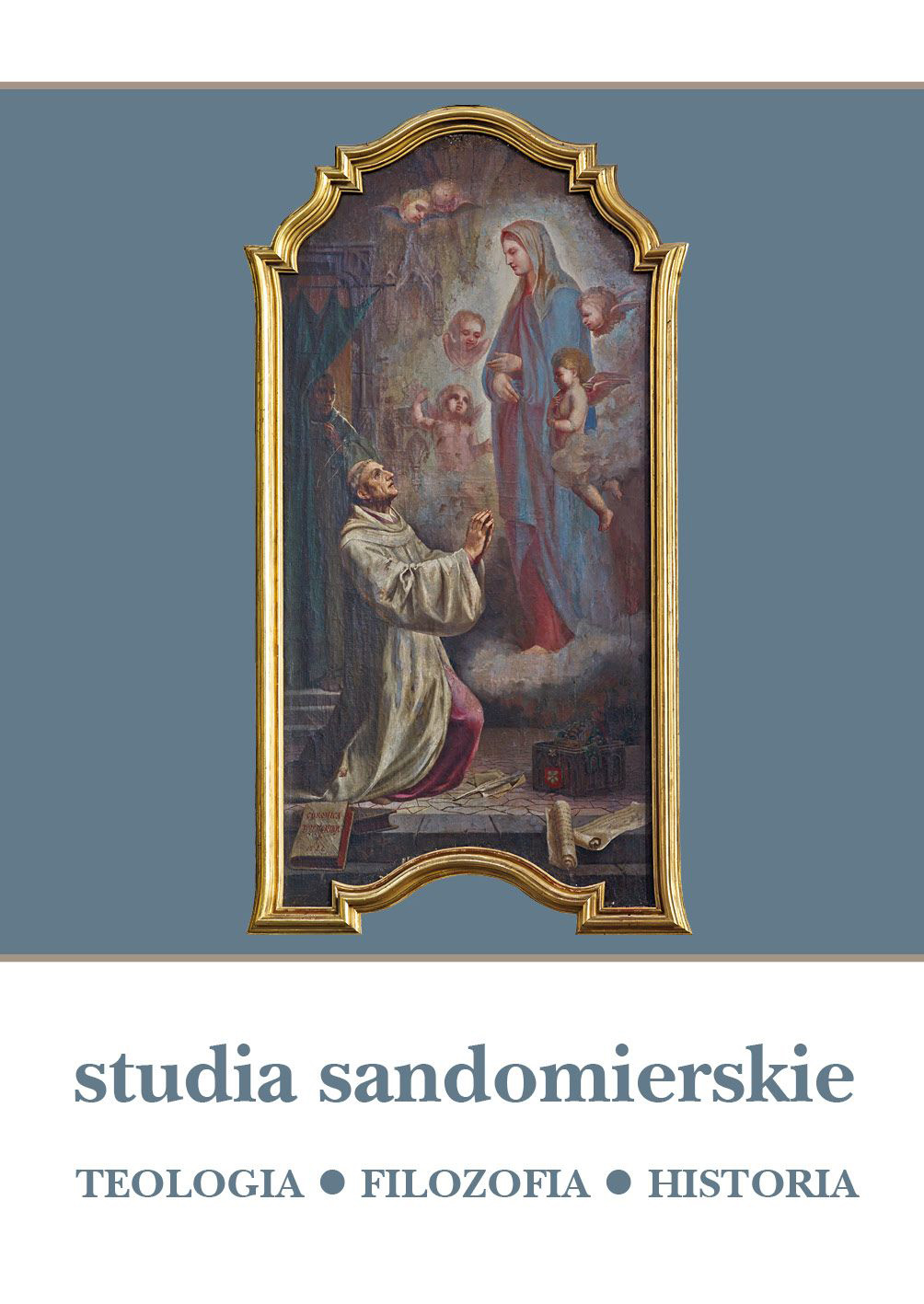Becoming a Gift as the Realization of Humanity
DOI:
https://doi.org/10.15633/sts.2909Keywords:
creation, humanity, personalistic norm, communio personarum, giftAbstract
The article below presents God’s idea for living a human life, according to which man fulfills himself by becoming a gift. The article analyses the biblical accounts of the creation of man and texts by Karol Wojtyła - John Paul II regarding personalistic thought and the theology of the body. According to the personalistic norm presented in the text, a human being as a person has its inalienable dignity and value and shapes a proper attitude in all interpersonal relations. The key element in this interpersonal experience is the encounter with Christ - Love who is the only one to help a person understand him or herself. At the same time, discovering the nuptial meaning of the body leads to giving oneself as a gift in a completely free and gratuitous way. On the basis of mutual exchange of gifts, a communion of persons is born - communio personarum. Man, being created in the image and likeness of God, reflects the inner life of the Divine Person through the selfless exchange of gifts. Becoming a gift is the way leading a man to realize his humanity fully.
References
Źródła drukowane
Biblia pierwszego Kościoła, tłum. R. Popowski, Prymasowska Seria Biblijna, Warszawa 2016.
Pismo Święte Starego i Nowego Testamentu w przekładzie z języków oryginalnych (Biblia Tysiąclecia), wyd. 5, Poznań 2000.
Sobór Watykański II, Konstytucja duszpasterska o Kościele w świecie współczesnym „Gaudium et spes”, Wrocław 2005.
Wojtyła K., Miłość i odpowiedzialność, Lublin 2010.
Wojtyła K., Osoba i czyn oraz inne studia antropologiczne, Lublin 2020.
Jan Paweł II, Redemptor hominis, w: Jan Paweł II, Encykliki Ojca Świętego Jana Pawła II, Kraków 2009, s. 5–48.
Jan Paweł II, Mężczyzną i niewiastą stworzył ich, Kraków 2020.
Źródła internetowe
Jan Paweł II, Homilia z mszy na placu Zwycięstwa (2 czerwca 1979 r.), nauczaniejp2.pl/dokumenty/wyswietl/id/538 [dostęp: 11 I 2022 r.].
Jan Paweł II, Medytacja na temat „bezinteresownego daru”, opoka.org.pl/biblioteka/W/WP/jan_pawel_ii/inne/medytacja_08021994.html [dostęp: 13 XII 2021 r.].
Opracowania
Anderson C., Granados J., Wezwani do miłości. Wprowadzenie do teologii ciała Jana Pawła II, Warszawa 2011.
Healy M., Mężczyźni i kobiety są z raju, Warszawa 2008.
Kopycki P., Elementarz teologii ciała według Jana Pawła II, Częstochowa 2013.
Kupczak J., Dar i komunia. Teologia ciała w ujęciu Jana Pawła II, Kraków 2006.
Kupczak J., Logika daru – koncepcja miłości w filozofii Karola Wojtyły, „Ethos. Kwartalnik Instytutu Jana Pawła II KUL” 19 (2006), nr 4 (76), s. 144–154.
Kupczak J., Wartości ważne i najważniejsze. Karol Wojtyła/Jan Paweł II o sztuce życia razem – konferencja wygłoszona dla nauczycieli podczas konferencji w Małopolskim Centrum Kształcenia Nauczycieli w Krakowie 24 listopada 2020 r. (zapis konferencji udostępniony uczestnikom spotkania przez MCDN w Krakowie).
Merecki J., Rodzina jako niezbywalne miejsce dojrzewania i spełniania się człowieka, w: Wokół antropologii Karola Wojtyły, red. A. Maryniarczyk, P. Sulenta, T. Duma, Lublin 2016, s. 433–447.
Salij J., „Człowieka nie można do końca zrozumieć bez Chrystusa”, „Wrocławski Przegląd Teologiczny” 3 (1995), nr 1, s. 73–79.
Styczeń T., Człowiek darem. Na marginesie Jana Pawła II „teologii ciała”, w: Człowiek darem. Życie – rodzina – państwo – prawo, red. C. Ritter, Lublin 2014, s. 89–114.
Styczeń T., Człowieka portret własny. Karola Wojtyły – Jana Pawła II antropologia adekwatna, w: O Jana Pawła II teologii ciała. Filozoficzno-teologiczne komentarze do „Mężczyzną i niewiastą stworzył ich”, red. T. Styczeń, C. Ritter, Lublin 2009, s. 9–18.
Styczeń T., Urodziłeś się, by kochać, Lublin 1993.
West C., Teologia ciała dla początkujących, Warszawa 2009.
Wojtyła K., Godność, prawda, miłość – fundamenty personalizmu ks. Tadeusza Stycznia SDS, w: „Przyjdź królestwo Twoje”. Księga pamiątkowa dedykowana Jego Ekscelencji Księdzu Biskupowi Henrykowi Tomasikowi w siedemdziesiątą rocznicę urodzin, red. M. Jagodziński, J. Wojtkun, Radom 2016, s. 489–498.
Downloads
Published
Issue
Section
License

This work is licensed under a Creative Commons Attribution-NonCommercial-NoDerivatives 4.0 International License.
Authors who publish with this journal agree to the following terms:
- Authors retain the copyright and full publishing rights without restrictions, and grant the journal right of first publication with the work simultaneously licensed under a Creative Commons Attribution 4.0 International License that allows others to share the work with an acknowledgement of the work's authorship and initial publication in this journal.
- Authors are able to enter into separate, additional contractual arrangements for the non-exclusive distribution of the journal's published version of the work (e.g., post it to an institutional repository or publish it in a book), with an acknowledgement of its initial publication in this journal.
- Authors are permitted and encouraged to post their work online (e.g., in institutional repositories or on their website) prior to and during the submission process, as it can lead to productive exchanges, as well as earlier and greater citation of published work (See The Effect of Open Access).

